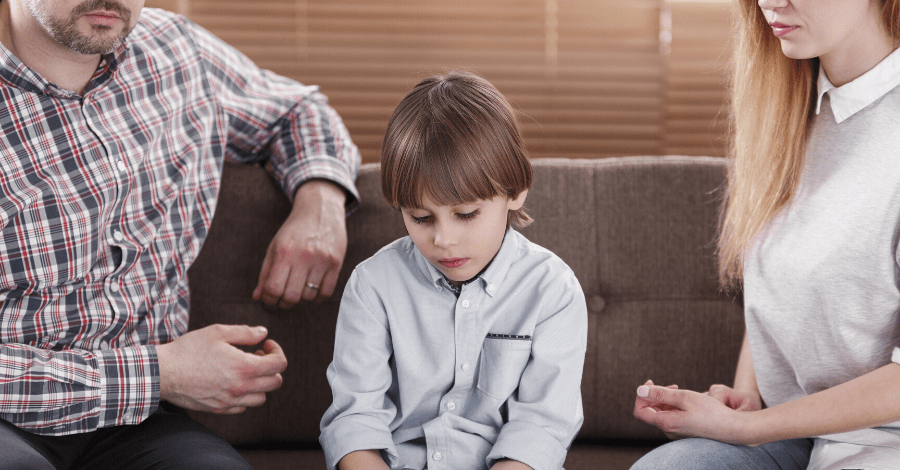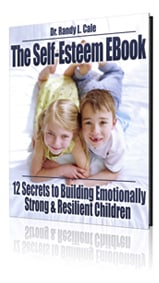Recently, several situations have reminded me of the importance of speaking to parents going through divorce, particularly those with high levels of conflict. Repeatedly, we see that the literature is clear: Studies consistently show that divorce tends to cause compromises in parenting. Consistent parents become inconsistent. Decisions that used to be easy become hard. Anger and blame get in the way of sound judgment. Fear blinds one from seeing the truth of your actions.
And children change as well. The challenging child has become unbearable. The studious child refuses to do her homework. The once cooperative siblings are ‘at it’ all the time. The teen now wants to be in your business all the time.
Add to that…the respectful, well behaved pre-adolescent changes overnight, and is now combative, oppositional, and argumentative… and you are at your wits end!
Well, not all is lost. There are significant choices that will help you in both the short and long term.
Three Correctable Mistakes
Before discussing this section, let’s be clear: This divorce stuff is not easy. It’s hard. In fact, harder than most imagine it to be…regardless of the situation. Having said that, here are the three (relatively) easily correctable mistakes to address now and get back on track.
1. Everything would be okay, if my ex were handling things better.
BLAME: This is the granddaddy of divorce mistakes, as it creates numerous problems. Many parents stumble into the blame game, and in many ways…it’s understandable.
Errors in judgment are made. Emotions run high. Things get said that shouldn’t be said. And, there is much that we can’t control, especially when we look across the table to our soon to be ex-spouse.
And therefore, it’s such an important mistake to come to grips with. The more we invest our energy and attention on things we can’t control…the more we get seduced into repeated battles trying to influence the ‘un-controllable’ person across from us.
Remember: rarely is the other parent eager to hear your opinions on things or motivated to change based on your wishes. So why do this, over and over again?
But more importantly, every moment we spend focused ‘over there’ is a moment we surrender our peace and happiness and neglect our parenting growth. It’s a moment we reinforce anger and blame, which then blinds our parenting choices.
Few divorcing parents like to hear this. Many will stop right here, and not go a step further because it is more comfortable to put all the responsibility ‘over there.’
It’s never ‘all over there.’
But if you focus all the energy over there as the reason for the problems that exist, you get to avoid looking in the mirror. The complainer or blamer never has to accept responsibility for their portion and thus never fully step up to be the best possible parent.
2. Winning allegiance by softening limits and expectations.
This mistake is also quite common, and frequently divorcing parents believe that there is justification: “The divorce is tough enough….so I will go easy on the kids.”
This is dead wrong. Kids need structure and consistency, and every study of divorce that has looked at this issue finds that soft limits create more problems in divorce.
It is easy to want to buy more, give in more often, and get lax on bedtime or video games and the like. Of course, most children will push you for this. But their desires are not based on what is good for them. It’s based on what they want at the moment.
In fact, that is often the case for most of us. The things we typically crave for immediate gratification are ultimately lacking in long term value. Hold firm, as your children need you to say ‘no.’ The limits teach them habits, that will serve them long after the pain of the divorce has passed.
3. Talking to children about ‘grown-up’ issues.
I frequently get questions like, ‘My kids are quite mature for their age, and want to know the details. So, it’s okay to share that with them? Yes?’
The answer is no. It is not okay to discuss these topics.
And yes, your bright, capable child can often dialogue with you using very adult language, but it doesn’t mean their understanding or judgment is at your level. More importantly, it is impossible for even the best-intentioned parent to keep their biases out of such discussions.
The topics should never turn to adult level conversations, as the bias in explanations are almost always self-serving…not child-serving. No matter how hard we try, it’s practically inevitable that we our bias paints a picture that ‘I am’ the better parent, the better person and have made the better choices.
The wise choice is to stay away from all this. Children cannot be brought into adult level dialogue about the divorce, or it will ultimately harm them. Of course, they will often want to join you there, but it doesn’t mean that it’s good for them.
So please, if going through a divorce, look at these mistakes, and if present, correct them today. Your children will be grateful in the years ahead.















